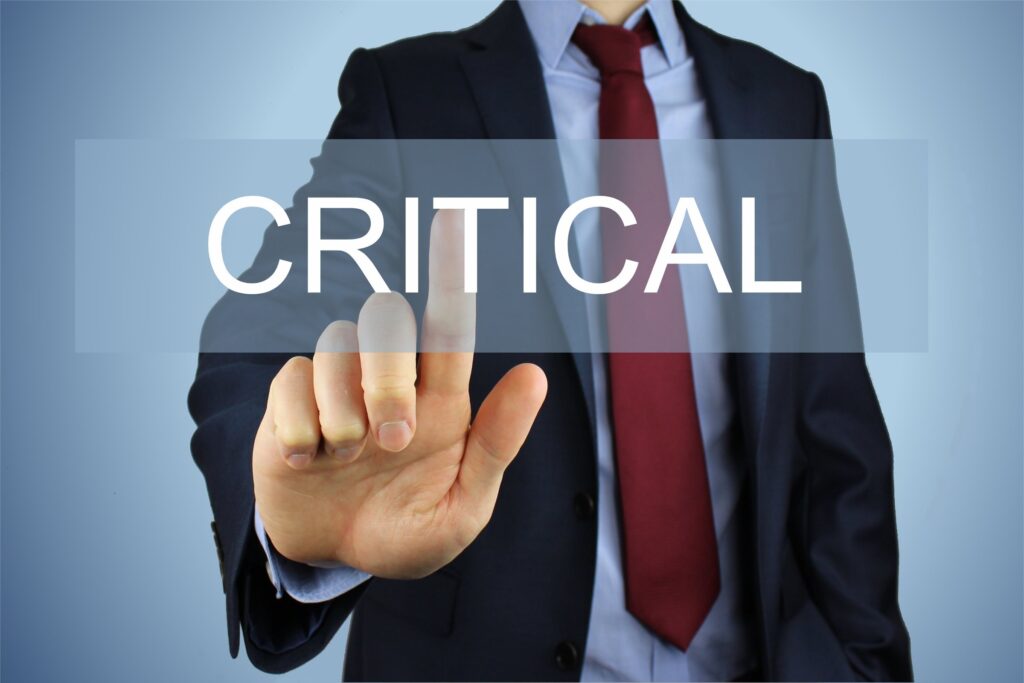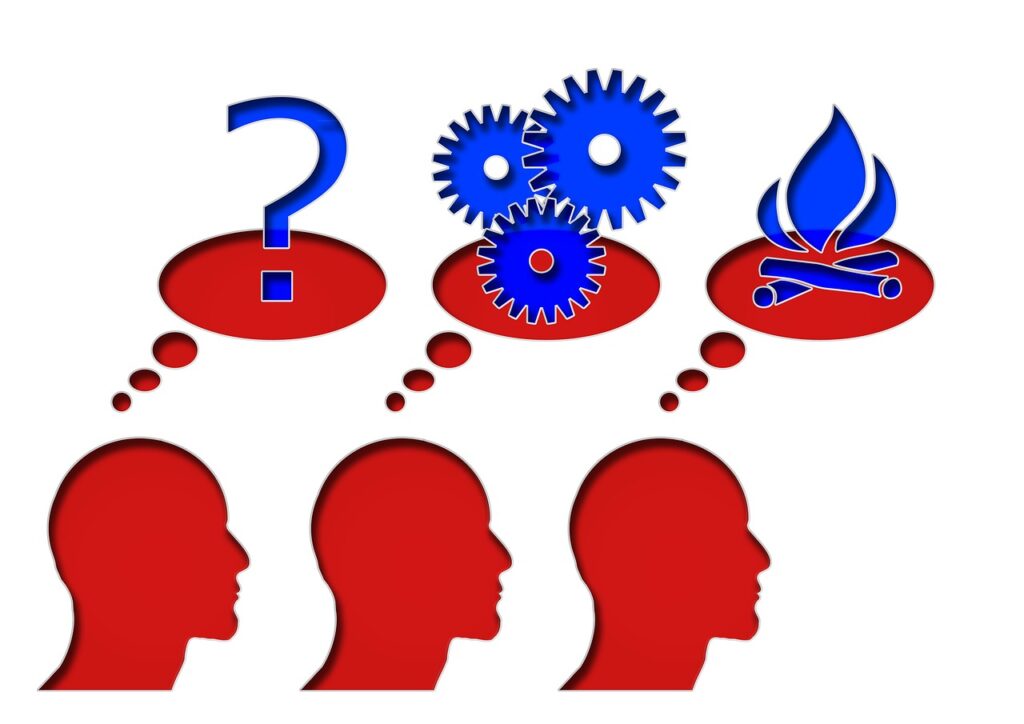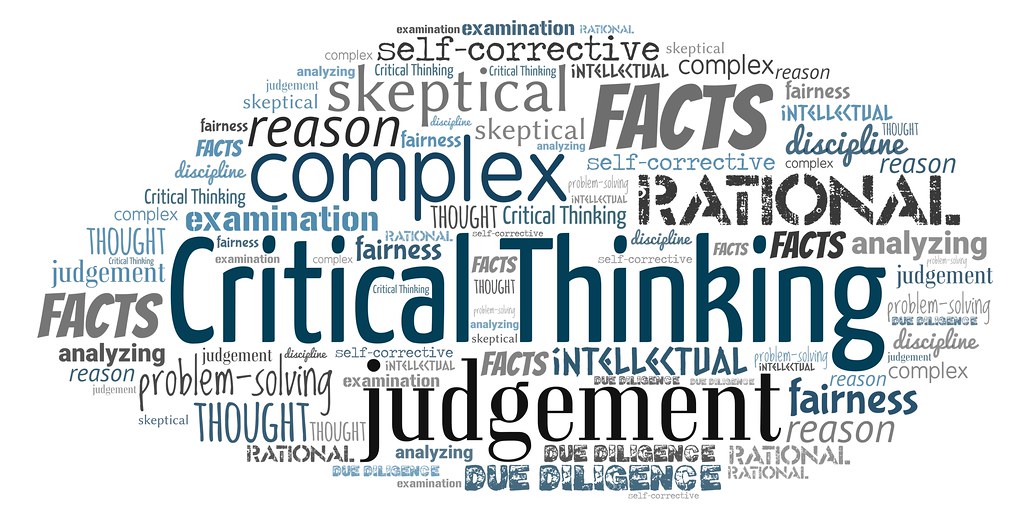Critical thinking is an important skill, not just in school but also in our daily lives when we make decisions and solve problems. Critical thinking skills involves looking at information, asking questions, considering different points of view, and making well-thought-out choices. In this blog, we’ll talk about what critical thinking means, why it’s important, and how you can get better at it to handle challenges more easily.
What is Critical Thinking?

Critical thinking means being good at looking at information, thinking about it, and using it to make smart decisions. It’s about asking questions, thinking about different ways to see things, and making thoughtful choices based on what you’ve figured out. You don’t only use this skill in school; it’s something that helps you make smart decisions in your everyday life.
Why Critical Thinking Matters?
Enhanced Problem Solving:
Critical thinking enables you to dissect problems, identify their core components, and develop effective solutions. It’s about going beyond surface-level understanding to address challenges at their roots.
Informed Decision Making:
Whether in personal or professional spheres, critical thinking helps you make well-informed decisions. You learn to weigh evidence, consider consequences, and choose the most rational course of action.
Effective Communication:
Engaging in critical thinking refines your communication skills. You can express your ideas more clearly, back them up with sound reasoning, and engage in constructive discussions with others.
Continuous Learning:
Critical thinkers are lifelong learners. They embrace new information, seek out diverse perspectives, and are open to refining their views based on evolving evidence. This mindset fosters intellectual growth.
Adaptability:
The ability to think critically is crucial in a rapidly changing world. It equips you to adapt to new situations, navigate uncertainties, and thrive in environments that demand flexibility and resilience.
How to Develop Critical Thinking Skills?

Ask Thoughtful Questions:
Challenge assumptions by asking questions like “Why?” and “How?” This habit encourages deeper exploration and helps uncover hidden aspects of a situation.
Evaluate Evidence:
When presented with information, assess its credibility and relevance. Consider the source, the context, and any potential biases that may influence the information.
Consider Alternative Perspectives:
Expand your thinking by considering viewpoints different from your own. This not only enriches your understanding but also fosters empathy and tolerance.
Practice Reflection:
Regularly reflect on your thoughts, actions, and decisions. Analyze what worked well, what could be improved, and what you learned from each experience.
Engage in Socratic Dialogue:
Socratic questioning involves a structured dialogue that stimulates critical thinking. Engage in conversations where participants question and challenge each other’s assumptions. This is very much useful in developing critical thinking skills.
Real-Life Applications of Critical Thinking
Workplace Challenges:
Critical thinking is highly prized in the workplace. Whether you’re solving a complex problem, making strategic decisions, or collaborating with colleagues, this skill sets you apart.
Personal Relationships:
In personal relationships, critical thinking aids in resolving conflicts, understanding others’ perspectives, and making decisions that benefit both parties. In modern life, lots of relationships suffer due to a shortage of critical thinking skills.
Media Literacy:
In an era of information overload, critical thinking skills are essential for evaluating media content. It helps you discern between reliable sources and misinformation.
Financial Decision Making:
When managing finances, critical thinking ensures you make informed choices about budgeting, investing, and spending wisely.
Healthcare Choices:
Critical thinking plays a role in healthcare decisions. It helps you assess different treatment options, understand medical information, and collaborate effectively with healthcare professionals.
Critical Thinking Skills: Challenges in Developing Critical Thinking
Overcoming Cognitive Biases:
Recognizing and overcoming cognitive biases, such as confirmation bias and the anchoring effect, is a challenge. Critical thinkers actively work to minimize the impact of these biases on their judgments.
Resisting Conformity:
Critical thinkers avoid blindly conforming to societal norms or peer pressure. This requires courage and a willingness to stand by one’s beliefs when they are well-founded.
Balancing Open-Mindedness and Skepticism:
Striking a balance between being open-minded and maintaining a healthy dose of skepticism is crucial. Critical thinkers remain receptive to new ideas while being cautious about accepting information uncritically.
Conclusion on Critical Thinking Skills
In a world inundated with information, developing and honing critical thinking skills is a beacon of intellectual empowerment. It’s a tool for making better decisions, understanding the world more deeply, and navigating life’s complexities with confidence. Embrace the journey of cultivating critical thinking—your mind’s sharpest tool—and witness the positive impact it has on every facet of your life
The well known futurist Alvin Toffler has also explained that in the 21st century, being illiterate won’t just mean not knowing how to read and write. It will mean not being able to learn, unlearn, and relearn which again requires some sort of critical thinking skills.
FAQs
How to learn critical thinking?
To get better at critical thinking, start by asking questions and not always accepting things as they seem. Try to see situations from different points of view, listen carefully to what others say, and check if the information you get is reliable. When facing complicated problems, break them into smaller parts to figure them out step by step. Read different things to expose yourself to various ideas. Also, take time to think about your own beliefs and question them. By doing these things, you’ll become better at thinking critically, which helps in making good decisions in school and daily life.
Is critical thinking a skill or talent?
Critical thinking is like a skill you can practice and get better at—it’s not something you’re just born with. It means looking at information carefully, asking questions, and making smart decisions based on what you find out. Anyone can learn and improve critical thinking (critical thinking skills) through practice, education, and experience. It’s not something you’re born with and can’t change; instead, it’s a set of skills you can build over time. People who ask questions, think about things, and solve problems are always getting better at critical thinking. So, with effort, anyone can become good at it!
What are 5 critical thinking skills?
- Analysis: Break down complex information into parts for better understanding.
- Evaluation: Assess the credibility and relevance of information, arguments, or solutions.
- Inference: Draw logical conclusions based on available information.
- Problem-Solving: Approach challenges systematically and find effective solutions.
- Decision-Making: Make well-reasoned choices by considering all relevant information.
What is the best type of thinking?
The best way of thinking changes based on what you’re dealing with. Critical thinking is good because it helps you analyze things, use logic, and make smart decisions. This means you question things, look at different views, and check information. Creative thinking is also important. It helps you come up with new ideas, solve problems, and think in creative ways. Using both critical and creative thinking is like having a mix of skills in your brain. It helps you do well in different situations by knowing when to analyze, create, or work with others. This makes your thinking flexible and effective.
Do this every morning to stay fit and flexible.

